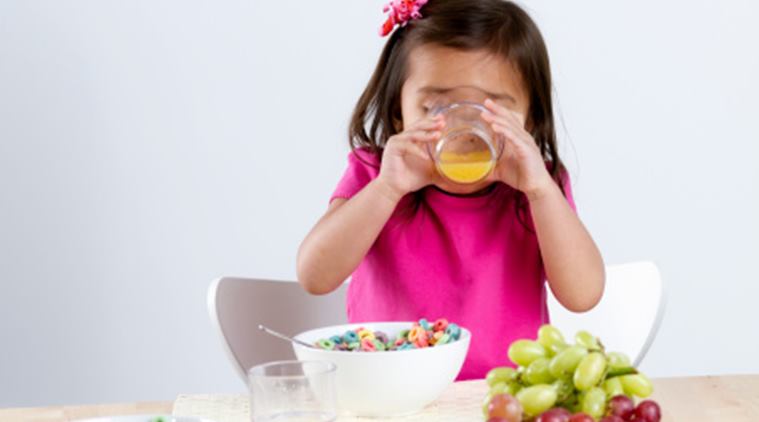Even if one consumes fruit juices, it should be limited to 125 ml per day (half cup) for children between two and five years of age, for 250 ml per day for those above five. But these should be fresh fruit juices.

Children below two years of age should not be offered fruit juices, either fresh or in the packaged form, according to the Indian Academy of Paediatrics (IAP) as they are high on calorie and sugar content.
The top body of child specialists has come up with the latest guideline on fast and junk foods, sugar-sweetened beverages and energy drinks. According to this, those between two and 18 years of age should also be discouraged from having fruit juices, fruit drinks or sugar-sweetened beverages.
Even if one consumes fruit juices, it should be limited to 125 ml per day (half cup) for children between two and five years of age, for 250 ml per day for those above five. But these should be fresh fruit juices. In fact, according to nutritionists, fruit juice can be almost as bad as a cola, since it contains less amounts of fibre and more sugar content, especially when topped up with table sugar. Whole fruits, however, contain vitamins and minerals your child needs for maintaining good health.
IAP guidelines also mention that kids below five years of age should not be given tea, coffee and carbonated drinks. For school-going children, tea and coffee should be limited to a maximum of 100 ml per day for those between five and nine years of age, and 200 ml per day for those up to 18 years of age.
About 93 per cent of children, between nine and 14 years of age, reportedly eat packaged food according to Centre for Science and Environment while 68 per cent consume packaged sugar-sweetened beverages more than once a week. And about 53 per cent of them consume these once a day.
Eating junk food increases the risk of obesity, hypertension, dental and behavioural issues in children. “Consumption of these foods and beverages is associated with higher body mass index and possibly adverse cardio-metabolic consequences in children and adolescents. Intake of caffeinated drinks may be associated with sleep disturbances,” reads the IAP guideline published in the journal Indian Paediatrics.
Source: Read Full Article
